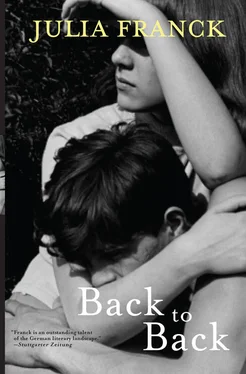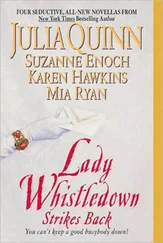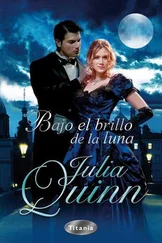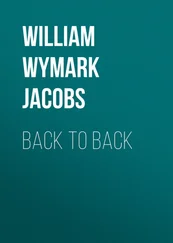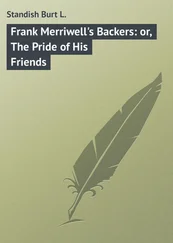And where would she have gone? He knew, only too well, that her supposed freedom was nothing but the truth of necessity. After all, his mother did not lack driving forces, felt capable of sacrificing herself to higher duties. Wasn’t he himself the incarnation of her necessity, even if the reasoning behind it could be questioned, never mind whether you went along with Hegel or Marx, depending on your society? Without financial means, without a reputation, still single at the time and with two bastard children, now divorced with four children, deep in the shit? She wanted to be a sculptor. There was no other society that offered someone like Käthe a place. He bit his lip to keep from saying what he was thinking: in this country, you have to have been persecuted by the Nazi regime. Thomas whistled through his teeth. Do you know what I dream of doing? Swimming round the Galapagos Islands. Quietly, he added: And writing.
Käthe laughed. She couldn’t take such dreamy notions seriously. You’ll grow up, study, work, show what you can do. He heard the mockery in her laugh. What, swim round an island on your own? Who? Who wants to read accounts of delightful travels? Her certainty struck home, surprising him. He supposed she wanted to remind him of what mattered in life. So that he wouldn’t dream of worlds no one had ever promised him, worlds that didn’t exist. He knew her warnings.
It’s all about renewing our society, never mind the chameleon’s tongue. Käthe put the wax model on the table and viewed it from all sides.
Your society, thought Thomas, not mine.
It’s said that Michelangelo idealised his models. No one has to invent anything like that about you, the gods were keeping an eye on Michelangelo’s fingers. She laughed. Käthe stroked the regularly formed back of the wax model with one finger. Thomas yawned so as to avoid hearing what she said. She wasn’t speaking to him, anyway, she was speaking to the room, to herself, maybe even to her wax creation, he hoped.
Now, come and sit down properly.
Thomas straightened up and rubbed his face with both hands to get rid of his weariness. She was talking about beauty; he was talking about what was to become of him. He had often known her to fall abruptly silent and turn to other subjects when he was talking about his own wishes, when he read a poem aloud and said he wanted to work with words and make writing his career. Something about that must seem improper to her. He was not trying to make her proud of him, he was just afraid of feeling that she was ashamed.
Why shouldn’t I be a journalist? Do you think my poems are embarrassing?
Embarrassing? Oh, good heavens, no. The poems themselves are — what can I say? You’re seventeen. Käthe squashed the wax nose of her model with some force. You don’t know what work means. Who trusts words today, and by what right? She was modelling the body in a perfunctory way, the legs, the chest, the arms. Thomas felt that she was impatient, he guessed that she would stand up in a moment.
Käthe wiped down her hands. I must go down and work on the stone now. Come with me — she went ahead — the heating’s not on, but you can stay as you are, all I need today is your head.
Thomas followed her downstairs to the studio. She put her glasses on, took the wooden peening anvil, chose a fine chisel and began working on the stone.
What are you thinking of? Käthe’s question came unexpectedly.
Thomas felt bad about his lack of sophistication; he would never enrich language or experience. The world seemed to him large and powerful, it didn’t need him. Why scrabble around like an animal? Language was not political in itself. What you made of it could be political, what many people made of it had to be political. Thomas, however, wanted to snatch language away from the political field and win it back for the world of beauty. He owed her an answer, he ought to tell her what he was thinking of.
I could write about the primeval dragonflies in the Himalayas, he said, and hesitated when he heard her snort. I could write about modern architecture in London, he tentatively went on. Isn’t an uncle of yours an architect there?
You mean the baby of the family?
Didn’t your father send you the newspaper cuttings about those tower blocks he designed? Thomas thought briefly of the odd fact that to this day the youngest sibling, envied by his brothers, was known by everyone as the baby of the family, even if the family no longer existed, still less the bosom of the family, Thomas’s great-grandparents were dead and all the brothers had families of their own. Thomas had never met the English great-uncle who was called the baby of the family. He was seldom discussed, obviously his relations were indifferent to his absence, and it did not bother anyone that since his emigration a great expanse of water lay between them at the very least, perhaps a whole culture.
What do you know about journalism? The sound she made clearing her throat was intolerable. He knew nothing about it, his ears were burning. Wasn’t she the one who was always wanting people to think critically, put resistance to the test, show civil courage? Thomas thought of the pictures from London that he had seen, and said: Why is London extending its city centre today, a good fifteen years after the end of the war, with the help of an architect who fled from Germany? A man who built them air-raid shelters and finally, in the middle of the city, wants to develop beauty of form and buildings for the English metropolis in post-war Europe? Huge apartment blocks that looked almost socialist, providing so much dwelling space all of a sudden in an environment full of single-storey and two-storey houses? Don’t you think that’s interesting?
Do you? Käthe impatiently gave one of the curt answers designed to cut a conversation short, end it, or at least change the subject, getting away from the theme that might interest the other person concerned and moving on to what seemed significant to her.
And the Botanic Garden in West Berlin: did you know they have Guatemalan giant ants there, I think by mistake, but no anteaters? How does man create a balance between plants and animals? Does he succeed, anyway? I could write about that. If I were a journalist I could write –
Thomas stopped. Käthe’s aversion and bad temper could be heard as her tapping grew louder; tiny fragments of stone hit his arms and legs. He had to raise his own voice to drown out the sound.
You could do this and that, huh, you must be joking! You want, you want, and your enthusiasm makes you blind. No one can do that. And I’ll tell you something: it’s obscene to tell people about the giant turtles on the Galapagos Islands while they’re standing in factories here making your shoelaces for you.
Why? Thomas looked at her. Käthe wrinkled her brow. She believed she could transport Michelangelo from Florence to East Berlin, she believed in the idea of people, in people themselves — but not in her son. Her son was not to want anything independently of her, certainly never anything outside her system of coordinates. Her love was pitiless, but it was love, there was no doubt of that. She grimly distorted her beautiful face. What do you know of the world?
Woof woof, he felt like saying, and laughed to himself, because the way she barked like a dog was only too familiar to him as a sign of her unrelenting love. He nodded his agreement. Exactly. But I want to find out about it.
If you want to know about the world stay here, do something with your hands, study chemistry or geology. You could do research into mineral oil, be a professor like your grandfather.
Her eyes were shining. Thomas wanted to turn away, but he couldn’t. There it was again, the noose round his neck, the noose round his legs, the gleam in her eyes. He needed a pair of scissors to cut himself free. Thomas knew how Käthe idolised her father and wanted to please him. If her son would only emulate her father, become a research scientist, a professor at the least, he would make her happy or at least content, for a moment.
Читать дальше
